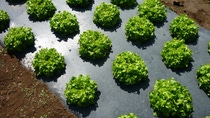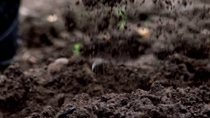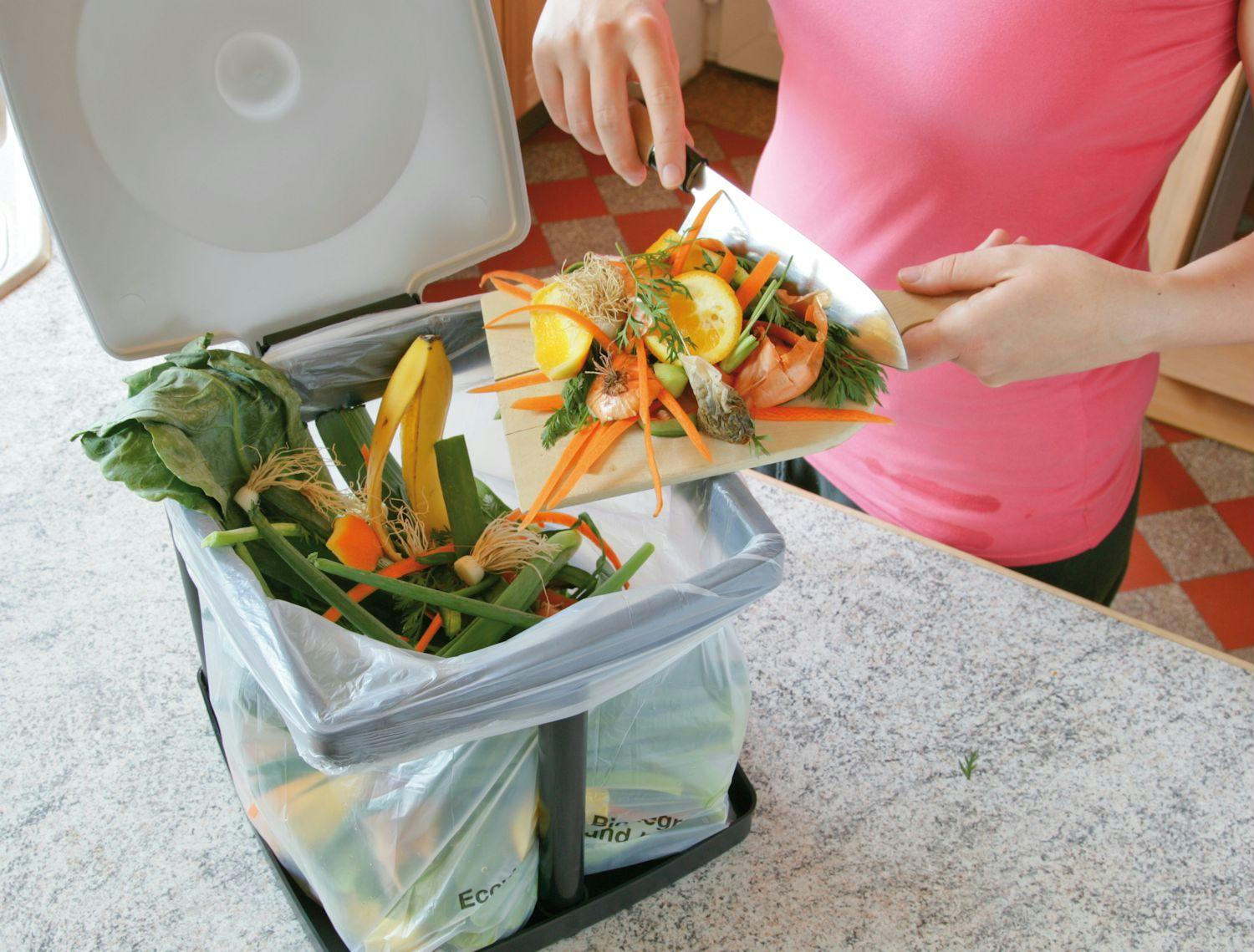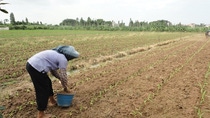From trash to treasure

BASF’s bio-based, biodegradable and certified compostable ecovio® offers products as well as an entire system solution where the supply and waste management of organic waste can be effectively controlled to produce high quality compost that will enrich soils.
For the first time at China Fashion Week, which took place from October 25-31, 2013, all food and drinks at the event venue were served in cups and plates made from BASF’s certified compostable and biodegradable ecovio®. The dishes were then be disposed together with any leftover food or organic waste in certified compostable waste bags made with ecovio, so that the waste could be efficiently and hygienically transported to an industrial composting site. At the composting site, the organic and biodegradable waste collected from the event was then converted into high quality compost. Non-organic and non-biodegradable waste, such as sweet wrappers or drinking bottles, were disposed in separate bins.
In China, most organic wastes are currently landfilled or incinerated. The landfilling of organic matter is environmentally detrimental as it generates methane, a greenhouse gas 23 times more potent than carbon dioxide. As organic waste has high water content, incineration is also not suitable as it requires significant amounts of energy and results in higher carbon dioxide emissions.
“Certified compostable bags made with ecovio enable the hygienic collection of source separated organic waste and the diversion of organic waste from landfills. This practice not only contributes to reduction of greenhouse gases, it also provides a viable and more sustainable option for organic waste,” said Dr. Tobias Haber, Regional Head, Business Management Specialty Plastics, Performance Specialties Asia Pacific, BASF. “If all organic wastes in China were to be collected separately and composted, not only would we be keeping all that trash out of landfills, we could also be saving 45 million tons of carbon dioxide equivalents every year.” (Source: US Environmental Protection Agency 2011, global emissions of non- carbon dioxide greenhouse gases)

The key to successful composting lies with separate collection of certified compostable products and organic waste at source. BASF’s certified compostable and biodegradable polymer ecovio can be part of the solution.
Just imagine how meaningful it could be if all tableware provided in environmentally- responsible public places, such as stadiums and convention centers, is made of biodegradable materials and then disposed of in complete biodegradable waste bags so that waste can be efficiently and hygienically transported to an industrial composting site and converted into valuable compost.
BASF also created the ecovio-based biodegradable mulch film, a product that has become an indispensable part of modern agriculture. Using biodegradable instead of conventional polyethylene mulch film enables the farmers to simply plough it into the soil along with what remains from the plants. As such, biodegradable mulch films help to preserve soil quality.

In the closed-loop system, the operator, like BASF, controls the value chain from supply of products to waste management. With ecovio, BASF offers products as well as an entire system solution. As such, the feeding of external items into and the discharge of waste from the system is greatly limited.
The closed loop system is a sustainable business model in the ongoing efforts towards a better future. Diverting organic waste from landfills to composting facilities is a sustainable alternative for organic waste management as it contributes to a reduction in greenhouse gas emissions and extends lifetime of landfills. The closed-loop system is possible in varying degrees at restaurants, public facilities (such as schools, hospitals), leisure facilities (such as amusement parks), stadiums and businesses (such as hotels, office buildings).

The BASF closed-loop system solution has been widely applied in many countries, at stadiums, convention centers and restaurants, among others, in the European Union and the U.S.A. In China, some leading market players are also actively involved in the ecovio pilot projects.
In June 2012, Huali Environmental Technology, and BASF jointly announced the formation of a partnership with the Wanke Community in Wuhan to promote the composting of source-separated organic waste (including kitchen waste) in certified compostable and biodegradable bags made with ecovio. To demonstrate the closed-loop concept for organic waste, the high-quality compost produced during the project (June to August) was used as organic fertilizer in the community and on farms in Wuhan Xingzhou.
In May 2013, BASF and Guangzhou Joraform Environmental Co., Ltd. announced that compost produced from its joint composting project at Chinaplas has proven successful and will be used to improve soil quality at the Guangzhou Nansha District Dagang Institute of Agricultural Sciences farm in Guangzhou province. The compost produced has been tested and proven to be of high quality.
